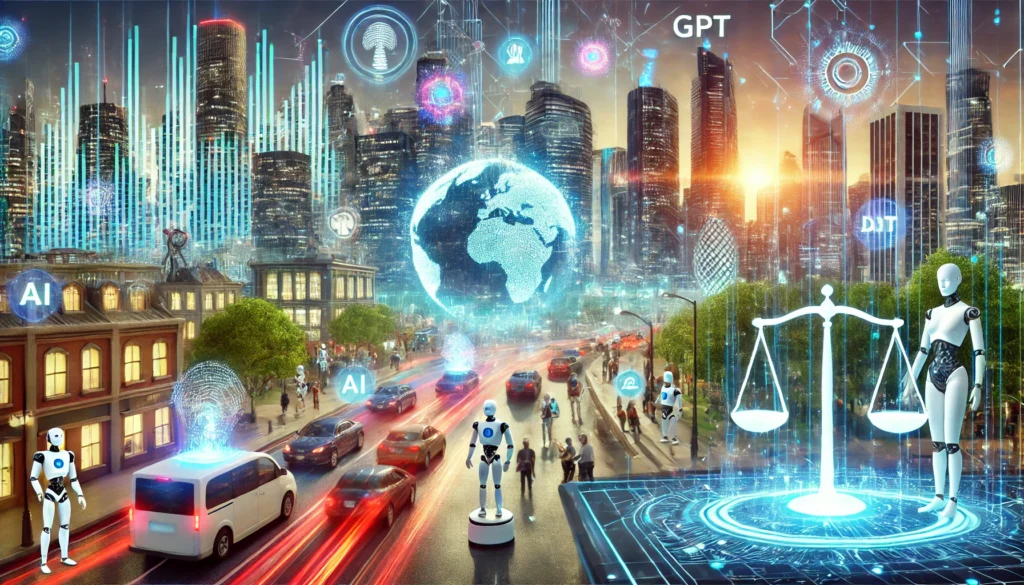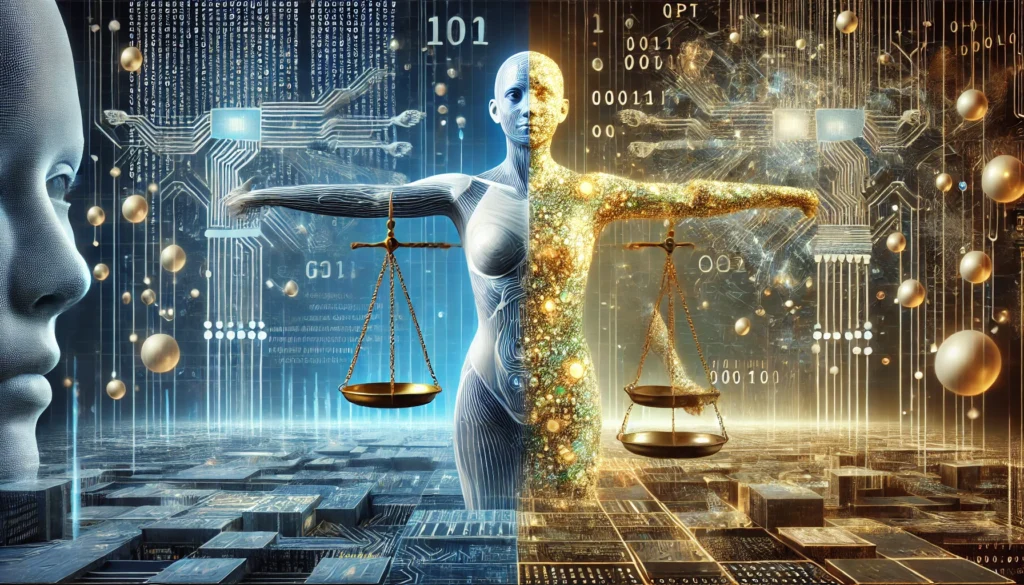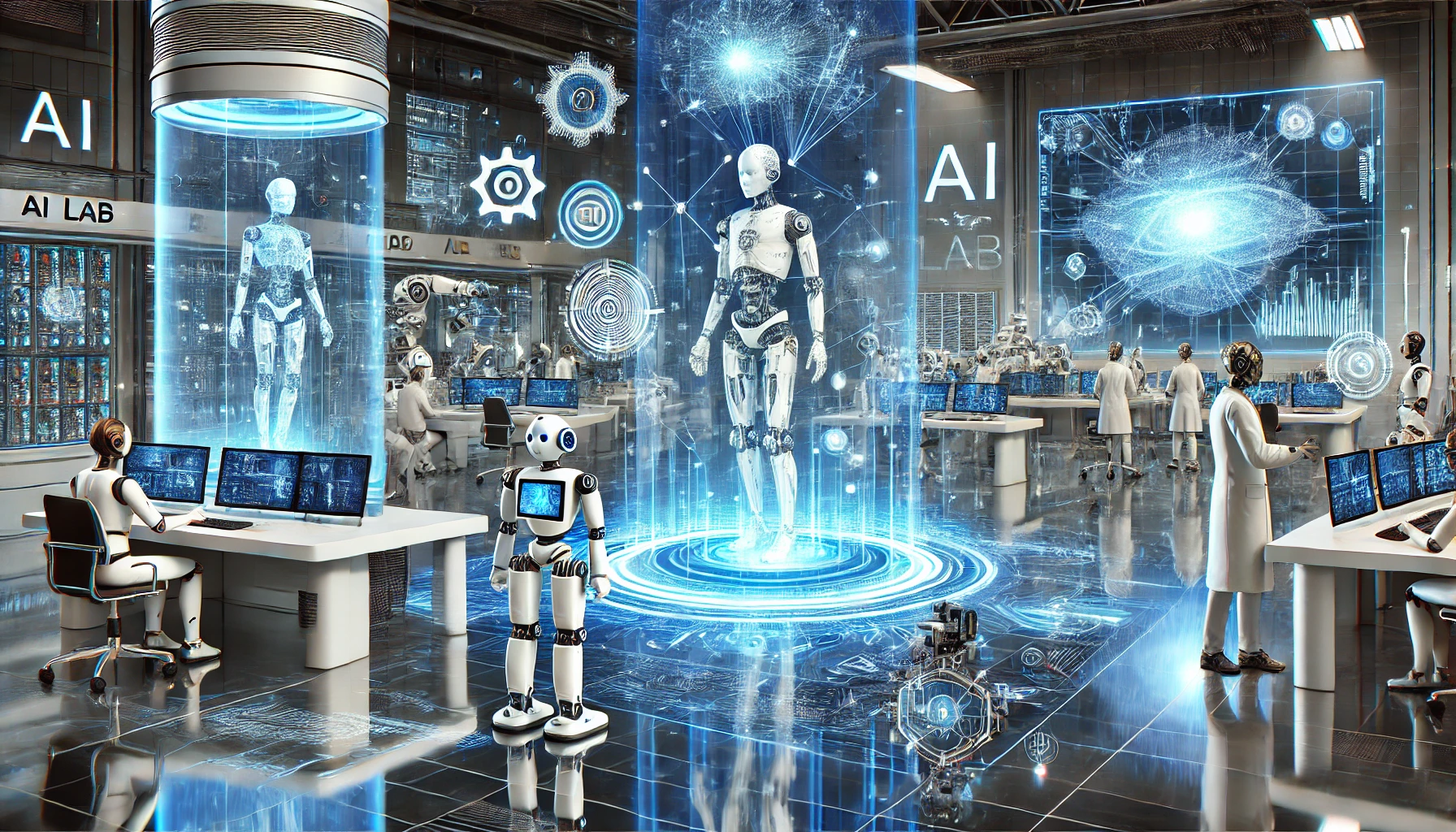Contents
Explore the future of GPT models, covering technological advancements, ethical implications, and their transformative impact on industries like healthcare, customer service, and creative sectors. Discover how GPT will evolve and the challenges it will face in the coming years.
Introduction to the Future of GPT
The Generative Pre-trained Transformer (GPT) models have revolutionized natural language processing (NLP) and artificial intelligence (AI) over the past few years. With each new iteration, GPT models have shown remarkable improvements, expanding their capabilities and potential applications. As the technology continues to advance, GPT is poised to drive significant changes in various sectors, from healthcare to customer service, and creative industries. However, these advancements come with important ethical considerations, such as privacy, bias, and accountability. In this analysis, we will explore the future of GPT, focusing on its technological advancements, the ethical challenges it presents, and its impact on industries.
Technological Advancements of GPT Models
The evolution of GPT (Generative Pre-trained Transformer) models over the past few years has been rapid, with each new version offering significant improvements in capabilities, accuracy, and real-world applicability. This section will explore the key technological developments driving the future of GPT, focusing on areas such as model architecture, training methodologies, and multimodal capabilities.
Model Architecture and Scaling
The foundation of GPT models lies in transformer architecture, which allows for efficient handling of large datasets through self-attention mechanisms. Future advancements will likely focus on scaling this architecture further, not only increasing model size (with GPT-4 already reaching trillions of parameters) but also enhancing the model’s ability to generalize across a broader range of tasks. As we approach the limits of pure model scaling, researchers may focus on optimizing architecture for energy efficiency and performance, a key factor in ensuring sustainable AI development.
Fine-tuning and Transfer Learning
As GPT models become more advanced, fine-tuning techniques will evolve to make them more adaptable to specific domains. Rather than training from scratch, fine-tuning allows models to be specialized for niche applications with less computational cost. In the future, we may see more personalized GPT models that can learn from individual user interactions, making the models more contextually aware and precise.
Multimodal Capabilities
The ability of GPT models to work across different types of data (text, images, audio, video) is a major area of innovation. The integration of multimodal learning, where a model can understand and generate text based on visual inputs or vice versa, will allow for a deeper, more nuanced understanding of human communication. This convergence of text and image, for example, could revolutionize fields like content creation, healthcare, and entertainment.

Ethical Implications of GPT Models
As GPT models become more sophisticated and integrated into various applications, ethical concerns surrounding their use have become increasingly important. While the technology itself offers immense potential, it also presents challenges in areas such as privacy, bias, and accountability.
Privacy and Security
One of the main ethical concerns is how GPT models handle personal data. These models are trained on vast datasets that include publicly available information, but they may inadvertently store or generate responses that contain private or sensitive information. Ensuring that GPT models respect user privacy, do not inadvertently leak data, and follow ethical guidelines for data use is crucial as the technology evolves. There is also the potential for misuse, such as generating malicious content or impersonating individuals in a way that undermines trust.
Bias and Fairness
GPT models are trained on data that reflect existing societal biases, whether based on gender, race, or socio-economic status. If not carefully managed, these biases can be perpetuated or even amplified in the model’s outputs. The challenge here is to develop mitigation techniques that minimize biases without overly restricting the model’s generalization capabilities. Research into “fairness-aware” machine learning aims to address these issues, but it remains an ongoing challenge to create models that are both unbiased and effective.
Accountability and Control
Another significant concern is accountability. Who is responsible when a GPT-generated model makes a harmful or inaccurate statement? As these models are integrated into more critical systems—such as healthcare, law enforcement, or finance—ensuring that they operate within clear ethical boundaries becomes more important. Researchers, developers, and regulators must collaborate to ensure that these models are not only technically proficient but also ethically sound.
Impact of GPT Models on Industries
GPT models are already having a profound impact on multiple industries, and their potential for disruption is only growing. In the coming years, GPT-powered tools are expected to revolutionize a range of sectors, from customer service to healthcare, and even creative industries.
Customer Service and Automation
One of the most immediate impacts of GPT models is in customer service and automation. Chatbots powered by GPT have already improved response times and service quality, offering personalized support to millions of users. As these models evolve, we can expect even more sophisticated AI assistants capable of handling complex queries, providing real-time support, and integrating with other systems to offer seamless, human-like interactions. This shift will not only enhance customer experience but also reduce operational costs.
Healthcare
In healthcare, GPT models show significant promise in medical diagnosis, personalized treatment recommendations, and administrative tasks. Models like GPT-4 have demonstrated their ability to analyze medical literature, assist in research, and provide insights into patient data. The future of GPT in healthcare could involve AI-powered assistants that collaborate with medical professionals to recommend treatments, track patient progress, and even assist in surgery through real-time data analysis.
Creative Industries
GPT models are also transforming the creative industries. AI-assisted writing tools, for instance, have already become indispensable for content creators, journalists, and marketers. In the future, GPT models may play a more central role in content creation, from generating stories to composing music and even designing video games. With multimodal capabilities, these models could create complex, interactive media experiences that blend visual, textual, and auditory elements.
Education
In education, GPT could act as a personalized tutor, helping students with homework, answering questions, and even tailoring learning paths to individual needs. This would not only increase access to quality education but also reduce disparities in learning outcomes. However, challenges around ensuring the accuracy of GPT-generated information and mitigating potential biases must be addressed before this can be fully realized.
Legal and Financial Sectors
In fields like law and finance, GPT models are already being used for document review, legal research, and even generating contracts. Their ability to analyze vast amounts of text data quickly will likely lead to automation of many routine tasks in these industries, reducing costs and time spent on repetitive work. However, the need for human oversight remains critical, particularly when it comes to understanding complex legal or financial nuances.

Conclusion on The Future of GPT
The future of GPT models is marked by significant technological advancements, with improvements in scalability, multimodal learning, and domain-specific applications. However, ethical challenges such as privacy concerns, bias, and accountability must be addressed. Ultimately, GPT’s impact across industries will redefine the way we interact with technology, offering both opportunities and challenges.
Frequently Asked Questions (FAQs) about the Future of GPT
Q1. What is GPT, and how does it work?
GPT, or Generative Pre-trained Transformer, is a deep learning model designed to process and generate human-like text. It uses a transformer architecture that enables the model to understand context, relationships, and patterns within text. GPT is pre-trained on vast amounts of data from books, articles, and websites, and then fine-tuned to perform specific tasks. The model generates coherent and contextually relevant text based on input, making it capable of answering questions, writing articles, creating content, and more.
Q2. What are the main technological advancements expected for GPT models in the future
The future of GPT models includes several key advancements:
- Scalability: GPT models are expected to grow in size, moving beyond the current trillion-parameter models to even larger and more capable systems.
- Multimodal capabilities: GPT models will become more adept at integrating multiple types of data, such as text, images, and audio, enabling richer, more contextually aware outputs.
- Personalized AI: Fine-tuning models for specific industries or individual needs will become more prevalent, making GPT tools more effective in specialized domains.
- Energy efficiency: As model sizes increase, developers will focus on optimizing GPT’s efficiency, ensuring sustainable AI practices.
Q3. How will GPT impact the healthcare industry?
GPT models are set to revolutionize healthcare by assisting with medical research, diagnostics, and patient care. They can analyze vast amounts of medical literature and patient data, helping healthcare providers make more informed decisions. GPT models could assist doctors in diagnosing diseases, recommending treatments, and even interacting with patients through AI-driven virtual assistants. However, healthcare applications will require careful oversight to ensure the accuracy of recommendations and to address ethical concerns such as data privacy and security.
Q4. What are the ethical concerns related to GPT?
Some of the primary ethical concerns surrounding GPT include:
- Bias: GPT models often reflect the biases present in their training data, which can perpetuate stereotypes or discrimination.
- Privacy: Since GPT models are trained on large datasets, there’s a risk that they could generate sensitive or private information.
- Accountability: Determining responsibility for errors or harmful outcomes generated by GPT models remains a significant challenge, especially as they are deployed in high-stakes industries like healthcare or law.
Q5. Can GPT models generate human-like creativity?
Yes, GPT models are capable of generating creative content that mimics human writing, art, and music. They are already being used in content creation, from generating blog posts to composing music and creating poetry. As the models evolve, they may become more adept at producing complex, nuanced creative works. However, questions about originality and authorship will continue to arise as AI-generated content becomes more indistinguishable from human creations.
Q6. What industries will be most affected by the rise of GPT?
The impact of GPT will be profound across several industries:
- Customer Service: GPT-powered chatbots and virtual assistants will improve customer support, reducing operational costs and improving user experiences.
- Education: GPT models could personalize learning, providing individualized tutoring and creating educational content tailored to each student’s needs.
- Marketing and Content Creation: GPT tools can assist in generating content for blogs, social media, and advertisements, streamlining marketing efforts.
- Healthcare: As mentioned earlier, GPT could assist in diagnosing diseases and personalizing patient care.
Q7. How will GPT affect job markets?
While GPT’s automation capabilities may replace some jobs, particularly in areas like content creation, customer service, and data entry, it is also likely to create new roles in AI development, ethics, and model training. GPT will augment human capabilities rather than fully replace them, especially in fields requiring specialized knowledge or emotional intelligence, like healthcare and law. Upskilling and reskilling will be essential to ensure that workers are prepared for the changing landscape.
Q8. What are multimodal GPT models, and why are they important?
Multimodal GPT models are those that can process and generate outputs based on multiple types of data, such as text, images, video, and audio. These models are important because they enable more sophisticated AI interactions. For example, a multimodal model could analyze both text and images to generate captions or descriptions, opening up possibilities for applications in fields like video analysis, content creation, and accessibility tools for people with disabilities.
Q9. How can GPT be used in education?
GPT models can transform education by offering personalized learning experiences. They can act as virtual tutors, answering student questions in real-time and adapting content based on individual learning styles and needs. GPT can also assist in creating educational materials such as practice problems, essays, and even interactive lessons. However, there are concerns about the accuracy and reliability of GPT’s answers, requiring careful monitoring and vetting in educational settings.
Q10. What is the future of GPT regarding its ethical regulation?
As GPT continues to advance, there will likely be an increased emphasis on ethical regulation. Governments and regulatory bodies are expected to set guidelines for the responsible development and use of GPT, ensuring transparency, fairness, and accountability. Key regulatory concerns will include data privacy, AI-driven decisions in high-risk areas, and mitigating the spread of misinformation. Collaboration between AI developers, ethicists, and policymakers will be crucial to creating an effective regulatory framework.
